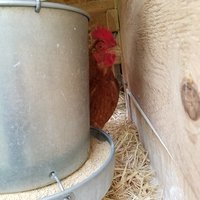so I’ve noticed that my chickens have stopped eating in the evenings. I’m wondering if the high humidity and high heat is causing them not to be hungry? Or if there’s another underlying factor.? They are under a giant magnolia tree that has a big canopy. They forage some but mostly dust bath and lay around. Don’t give me wrong, I’m not complaining that they’re not eating. I’m just curious if the heat is the major factor.
I also noticed they don’t have full crops most of the days either. Should they?
I also noticed they don’t have full crops most of the days either. Should they?




